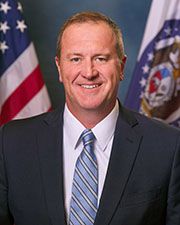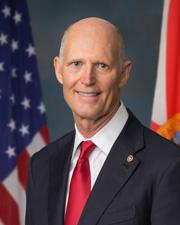0
A bill to require each agency to repeal 3 existing regulations before issuing a new regulation, and for other purposes.
1/17/2025, 11:56 AM
Summary of Bill S 30
The main goal of the bill is to decrease the regulatory burden on businesses and individuals by ensuring that new regulations are only implemented if they are deemed necessary and beneficial. By requiring agencies to repeal existing regulations before issuing new ones, the bill aims to promote efficiency and prevent unnecessary regulatory overlap.
In addition to the requirement to repeal three regulations for every new one, the bill also includes provisions for agencies to conduct regular reviews of their existing regulations to identify outdated or unnecessary rules that can be eliminated. This process is intended to ensure that regulations are kept up-to-date and relevant to current needs. Overall, Bill 119 s 30 seeks to promote regulatory reform and reduce the regulatory burden on businesses and individuals. It aims to create a more efficient and effective regulatory system that benefits both the government and the public.
Congressional Summary of S 30
Expediting Reform And Stopping Excess Regulations Act or the ERASER Act
This bill generally requires federal agencies to repeal three rules before issuing a new rule.
In the case of a new nonmajor rule, an agency must repeal at least three rules that, to the extent practicable, are related to the new rule.
In the case of a new major rule, (1) an agency must repeal at least three rules that are related to the new major rule, and (2) the cost of the new major rule must be less than or equal to the cost of the repealed rules. A major rule is a rule that has resulted in or is likely to result in (1) an annual effect on the economy of $100 million or more; (2) a major increase in costs or prices for consumers, individual industries, government agencies, or geographic regions; or (3) significant adverse effects on competition, employment, investment, productivity, or innovation.
These requirements apply to rules issued through the notice and comment process and do not apply to interpretative rules, general statements of policy, or rules of agency organization, procedure, or practice. Further, the requirements do not apply to a rule or major rule that relates to the management, organization, or personnel of an agency or procurement by the agency.
Any rule repealed under this bill must be published in the Federal Register.
Finally, the Government Accountability Office must report on the number and estimated cost of rules and major rules currently in effect.
Current Status of Bill S 30
Bipartisan Support of Bill S 30
Total Number of Sponsors
3Democrat Sponsors
0Republican Sponsors
3Unaffiliated Sponsors
0Total Number of Cosponsors
3Democrat Cosponsors
0Republican Cosponsors
3Unaffiliated Cosponsors
0Policy Area and Potential Impact of Bill S 30
Primary Policy Focus
Alternate Title(s) of Bill S 30
Comments

Daniella Carey
10 months ago
I'm not sure how this bill will impact me, but I'm interested to learn more.


